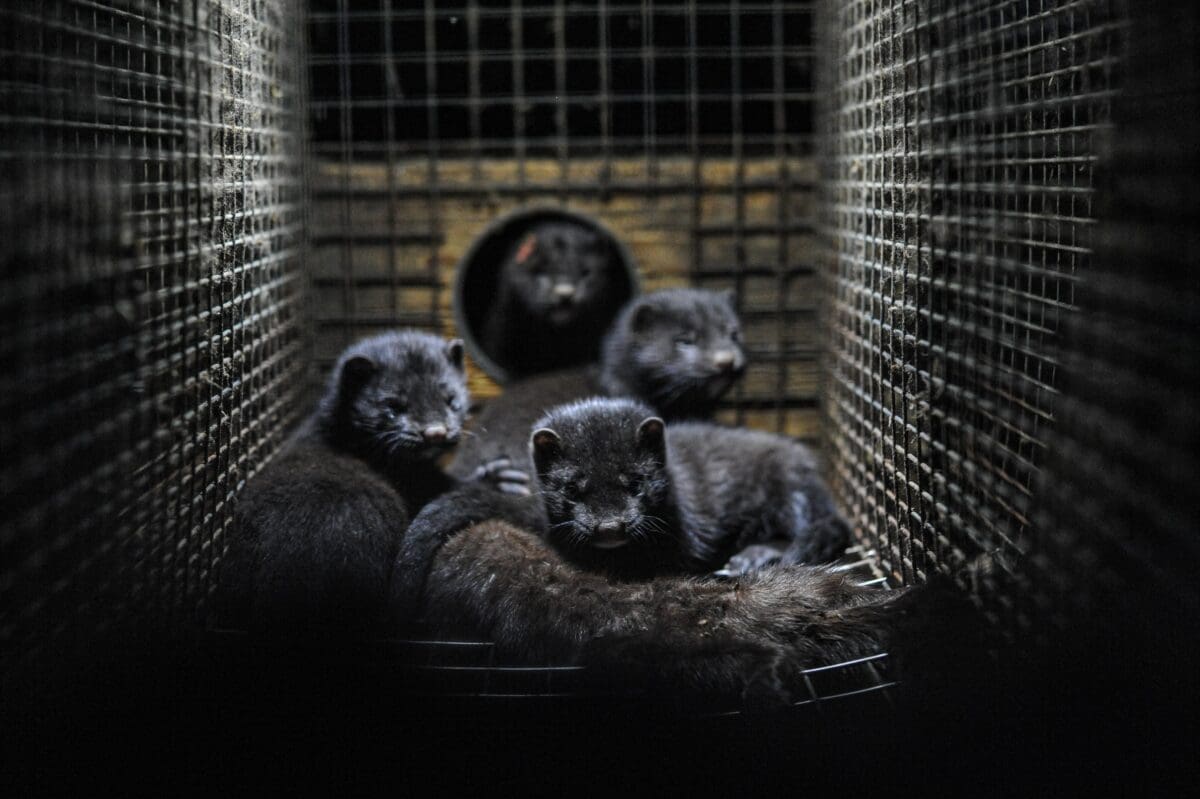Article originally published on Daily Hive.
News of an outbreak of COVID-19 at a mink farm in BC’s Fraser Valley is yet another warning that we need to stop the industrial exploitation of animals.
The outbreak, declared by the BC government after eight people at the site tested positive for the virus, is the first in Canada, but similar outbreaks are occurring around the world.
Last month, Denmark ordered a cull of the country’s 17 million minks to prevent the infection carrying over to humans. A mutated strain of the virus found on several mink farms had infected 12 people. The Netherlands, Italy, Sweden, Spain, Poland, Greece and several US states have reported SARS-CoV-22 in farmed minks.
Mink farms, like all factory farms, provide perfect conditions for viruses to spread and mutate because they confine large numbers of animals in cramped conditions. Farmed mink are kept in small, wire cages, denying them the ability to engage in natural behaviours. (Amendments to the code recently rescinded a commitment to provide bigger cages for mink by 2023.) As mink are semi-aquatic animals, lack of access to water for foraging makes the deprivation especially acute.
There are few laws governing the care and handling of farmed mink in Canada. Instead, there is a voluntary code of practice for the industry, with no independent enforcement. The code is overseen by the National Farm Animal Care Council (NFACC), a non-governmental body with heavy representation from industrial animal agriculture.
The lack of independent enforcement and inspection in the industry creates potential for animal suffering (beyond the stress of confinement that is considered acceptable in the code).
In 2015, the BC SPCA investigated a Fraser Valley mink farm and, according to media reports, found horrific conditions: “…row upon row, roughly 70,000 mink squirmed in cages the size of two shoe boxes as heaps of their own excrement mounted on the floor beneath them.
Many were missing limbs, digits and ears, and one animal — mysteriously paralyzed — had to be euthanized on site.” No charges were laid, as the operator was given an opportunity to “clean up his act.”
In 2018, an undercover investigation of an Ontario mink farm by animal advocates found unsanitary conditions, lack of veterinary care and lesions “all over” minks’ bodies. Charges were laid against the farmer.
While the exact circumstances of the COVID-19 outbreak at the B.C. mink farm are still being investigated by Fraser Health, there is growing concern that mink farming presents a threat to human health. This includes the potential for a mutated virus from a farm to impact the efficacy of a COVID-19 vaccine.
As one scientist told the BBC: “Every time the virus spreads between animals it changes, and if it changes too much from the one that is circulating within humans at the moment, that might mean that any vaccine or treatment that will be produced soon might not work as well as it should do.”
All of this begs the question: Why do we allow an industry that already compromises animal welfare to now threaten human health, especially when it only exists to provide a luxury item for a small number of consumers?
Animal advocates have long called for an end to the fur industry on moral grounds, citing the undeniable suffering the animals endure in unnatural conditions. Now, those same conditions may be creating a threat to human welfare.
“It’s time fur farming came to an end. Before the Fraser Valley outbreak, animal advocates had been calling for the Canadian government to support a transition away from fur farming. It’s a call that deserves public support – to stop needless animal suffering and to prevent a needless risk to public health.”

